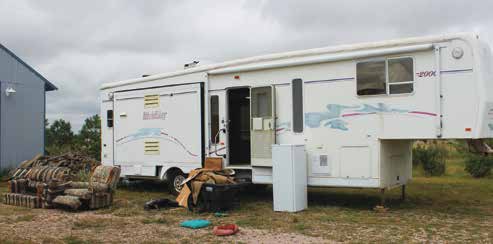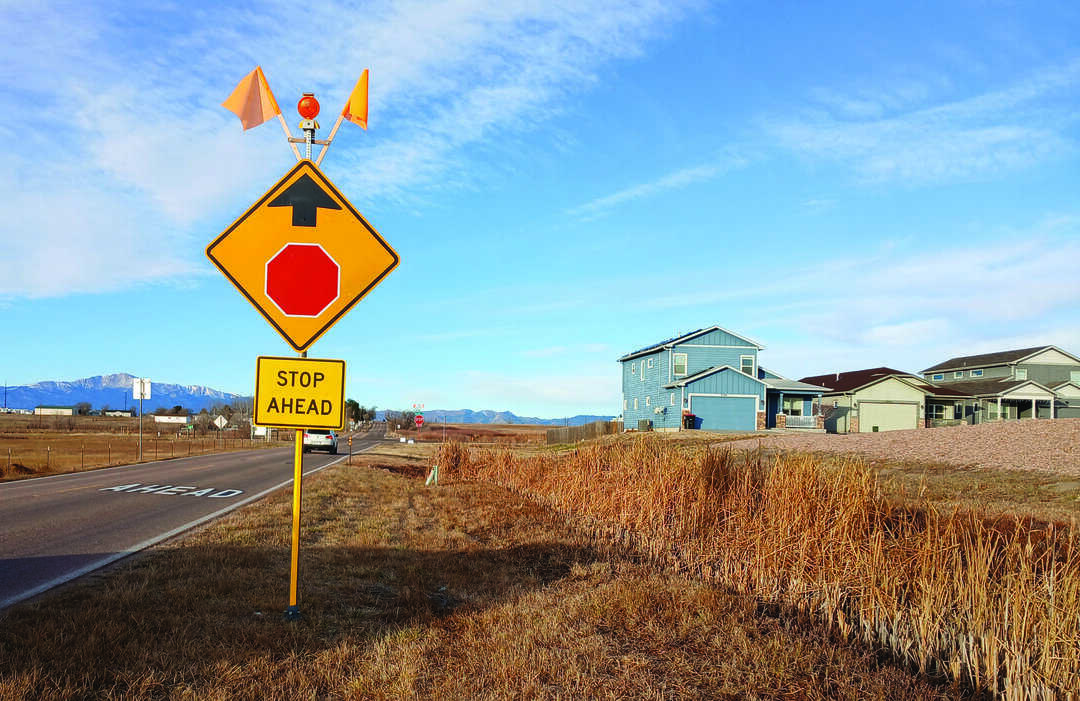We bought a Lemon
This is a story of buyer beware.
Or, if I want to be harsher, it’s a story of two idiots — myself and my wife, Margaret.
It began with Margaret’s desire for more space. We live in a three-bedroom manufactured home. There’s the master bedroom, the second bedroom serving as an office for the two of us, and the third being occupied by our adult son, who is living with us for a time. So we wanted more space for guests while Margaret also longed for her own space, a “she shed,” along with more home office space so our two desks weren’t crammed back to back.
The answer, we figured, was a trailer. It would fit right into the neighborhood, where it seems every other family has at least one RV or trailer on their property. Having room for one seems to be a motivation for folks to move out there. One family nearby has four; we assume they’re providing space for friends’ trailers.
We knew we wanted used as we couldn’t afford new. We wanted a fairly large trailer to provide both that she-shed space and guest quarters. And we wanted it to be a four-season trailer if possible so that if we had visitors in the winter (say our daughter visiting at Christmas), that space would still be tolerable.
We had one or two trailers slip through our fingers because of bad timing. Then Margaret found one being advertised in Woodland Park for only $2,500. It was in rough shape, the ad acknowledged, which explained the low price. But it also held the promise of at least good bones as it was built by NuWa, known to be a quality manufacturer.
It was, to be precise, a 34-foot HitchHiker, a 2000 Premier Series model, which falls in between the shorter, lighter Discover America series and the “luxury flagship” Champagne model. Back in the day, it would have cost nearly $60,000 new.
Kansas-based NuWa Industries no longer makes trailers, but there is still extensive information on its website. This, from the 2000 NuWa archives: “HitchHiker has developed a fifth wheel that combines the hospitality of the South with the airy, open feel of the West. The Premier Ltd. 2000 models feature almost 8-foot ceilings, panoramic windows and stand-up glide rooms. Include ultra-comfortable, homestyle furnishings and obvious craftsmanship and you can enjoy life’s scenery either inside your new LTD or outside on the patio.”
So, on a sunny Saturday we drove up to the RV park in Woodland Park where what would become our HitchHiker trailer was residing. The owner explained that her father-in-law had been living in it, but he had died. He’d had a dog that apparently rarely went outside to do its business, and so the carpet was urine-soaked. But, she pointed out, we could pull out that carpet (true). The three glide outs (or slide-outs — rooms that extend outward to make more space) weren’t working, but we would only need to replace a device known as a solenoid to make them work (false). On the plus side, the trailer had a new hot-water system (true) and the roof was in good shape with recent work done (false).

Were we lied to or did our seller herself have bad information? I don’t know, but the fact that after we bought it she never responded to questions via text or phone certainly makes me lean in that first direction. Still, as I said, this is a story of buyer beware. I should have climbed up the trailer ladder and examined the roof. We should have more closely inspected the interior, should have seen the rot in some of the walls, should have researched the solenoid issue.
Instead, after sleeping on it overnight, we offered to buy it. Even if it cost us another $2,500 to fix it up, we’d still have a bargain, we figured.
The bill, of course, would end up much higher than that. We paid to have the HitchHiker delivered, paid to have an RV and trailer expert come by and give it a once-over.
“The roof is in bad shape,” he told us, once he made the climb that I should have. Just having a professional apply a new coat of sealant to the roof would be in the area of $2,000 to $3,000, he said. And as he looked over the rest of the trailer, he seemed to be saying — without actually saying it — that we had made a mistake in buying it, though at the same time he did say that “someone” could make it really nice if they put in a lot of work.
Well, we had already put in work, including ripping out the stinky carpet and furniture, though that somehow made the smell worse. And we were prepared to do more. But then we stumbled across another professional who uncovered more problems: The roof didn’t just need a new coat of sealant; it needed repairing because of a hole around the air conditioning unit. And while we had gotten two of the slide-outs to pop out, the bedroom one was jammed and the kitchen-side one would only go out so far because of a wall and floor that had deteriorated, presumably a result of water damage from that roof hole. And there were systems we still hadn’t even tested, like the furnace, though we weren’t as concerned about that since nobody would be regularly staying in the trailer.
We decided to have the kitchen slide-out repaired but to decommission the bedroom one, which also had suffered water damage and rot.
Throughout it all, we (and particularly Margaret) second-guessed our decision to buy. Why had we rushed into this? Why were we so stupid?
Would this be like that old Tom Hanks movie, “The Money Pit”? Should we just cut our losses and see if someone wanted it just to salvage what they could? Should we find some dynamite and blow it up?
We’re calming down, however, as the major work is being wrapped up. (Our trailer fix-it guy, though, did just say, “It’s bad,” as he works to uncover the full extent of the damage to the kitchen slide-out.) But assuming he can still rebuild it, the structural issues will have been resolved and the smell is finally fading. We could then turn to fun stuff, the cosmetic issues and the furnishings. It may not be ready to house our daughter for that Christmastime visit, but by next spring it should at least be she-shed ready.
Well, unless we find another big problem. But what are the odds of that? (Wait, don’t ask.)





